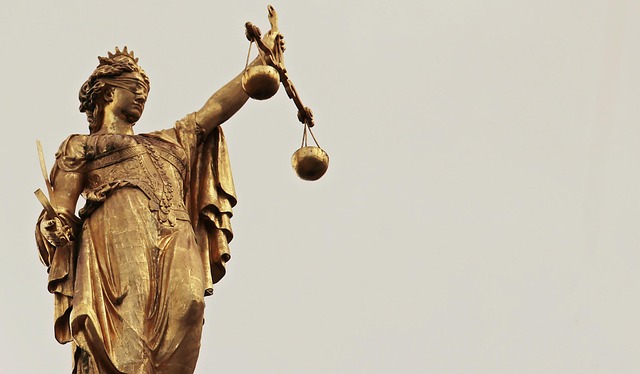Whistleblower Protection Lawsuits rely on plea bargaining as a strategic defence mechanism to mitigate charges and protect whistleblowers, offering significant advantages in exposing white-collar crimes. This process empowers both whistleblowers and prosecutors by securing reduced sentences, confidentiality, and crucial insights into case facts, fostering trust and upholding legal system integrity. Plea bargaining streamlines legal processes, protects reputations, and provides financial compensation, proving successful in numerous cases involving fraud or misconduct exposure.
“Uncovering the intricate world of whistleblower protection lawsuits, this article provides a comprehensive guide to navigating these legal landscapes. We explore ‘Understanding Whistleblower Protection Lawsuits’ and delve into the strategic role of plea bargaining as a powerful tool for safeguarding whistleblowers.
Learn how plea bargaining enhances effective protections in criminal cases involving whistleblowers, highlighting significant benefits. Through compelling case studies, we showcase successful outcomes achieved through strategically negotiated plea bargaining agreements, offering valuable insights into this game-changing approach.”
- Understanding Whistleblower Protection Lawsuits: A Comprehensive Overview
- The Role of Plea Bargaining in Ensuring Effective Whistleblower Protections
- Benefits of Plea Bargaining for Criminal Cases Involving Whistleblowers
- Case Studies: Examining Successful Outcomes Through Plea Bargaining Agreements
Understanding Whistleblower Protection Lawsuits: A Comprehensive Overview

Whistleblower Protection Lawsuits are a crucial legal mechanism that empowers individuals to expose corporate and government misconduct while safeguarding them from potential retaliation. These lawsuits offer significant benefits, including the ability to achieve extraordinary results in holding accountable those who engage in fraudulent or illegal activities. By providing a safe haven for whistleblowers, these suits encourage the exposure of white-collar crimes, which often involve complex financial schemes and sophisticated cover-ups.
The process involves careful navigation through legal complexities, where experienced attorneys play a vital role in guiding clients. One strategic approach that can be employed is benefits of plea bargaining in criminal cases. Plea bargaining allows for a negotiated settlement, potentially avoiding indictment and its associated penalties. This strategy can be particularly effective in white-collar defense, offering a way to mitigate charges and reach a mutually agreeable resolution, ensuring the client’s best interests are protected while still promoting accountability.
The Role of Plea Bargaining in Ensuring Effective Whistleblower Protections

In many criminal cases, plea bargaining plays a pivotal role in achieving effective whistleblower protections. This legal strategy allows for the resolution of charges against an individual or organization by agreeing to plead guilty to a lesser charge or accept specific conditions set by the prosecution. The benefits are multifaceted, particularly when it comes to safeguarding whistleblowers. By engaging in plea bargaining, prosecutors can gain valuable insights into the facts and circumstances surrounding the case, which can lead to more robust protection measures for those who expose wrongdoing. This approach ensures that whistleblowers receive adequate support throughout all stages of the investigative and enforcement process, promoting a culture where truth-telling is encouraged without fear of retaliation.
Moreover, plea bargaining offers white-collar defense attorneys an opportunity to navigate complex legal landscapes. They can leverage these negotiations to secure favorable outcomes for their clients while ensuring that the whistleblowers’ rights are upheld. Winning challenging defense verdicts through plea bargaining demonstrates a strategic and effective approach in managing high-stakes cases. This method not only protects individuals who bring forward crucial information but also strengthens the overall integrity of the legal system by fostering trust between whistleblowers, prosecutors, and the justice system as a whole.
Benefits of Plea Bargaining for Criminal Cases Involving Whistleblowers

Plea bargaining offers significant advantages for both whistleblowers and prosecutors when facing criminal charges related to white-collar and economic crimes. This strategy allows individuals to navigate complex legal systems more effectively, ultimately achieving extraordinary results. By negotiating a plea bargain, whistleblowers can often secure reduced sentences, minimize damage to their reputations, and gain some level of privacy or confidentiality in the proceedings.
This approach is particularly beneficial for those who have come forward with valuable information exposing fraudulent activities or corporate misconduct. A successful plea bargain may lead to a lighter sentence or even probation, enabling whistleblowers to move forward with their lives while still holding the perpetrators accountable. Moreover, it encourages cooperation, providing prosecutors with crucial evidence and insights into these intricate cases, thereby strengthening the overall white-collar defense strategy.
Case Studies: Examining Successful Outcomes Through Plea Bargaining Agreements

Whistleblower protection lawsuits often result in significant outcomes, with plea bargaining agreements playing a crucial role in achieving successful results. These agreements offer several benefits for both whistleblowers and defendants, creating a win-win situation. For instance, an unprecedented track record of secure settlements can be achieved through this process, ensuring the whistleblower’s anonymity and providing financial compensation while sparing the respective business from public scandal and potentially damaging jury trials.
Plea bargaining allows for a more efficient resolution, where both parties mutually agree to avoid extensive legal battles. This strategy has proven effective in various case studies, where whistleblowers have secured substantial rewards for exposing fraudulent activities or corporate misconduct. By negotiating plea bargains, they can receive recognition for their courage while also obtaining the resources necessary to rebuild their lives and careers.
Whistleblower protection lawsuits play a pivotal role in fostering transparency and accountability within organizations. By understanding the nuances of whistleblower protections and leveraging tools like plea bargaining, we can ensure that individuals who come forward with crucial information are safe from retaliation. The benefits of plea bargaining in criminal cases involving whistleblowers are evident, as seen in successful case studies. These agreements not only protect whistleblowers but also deter future misconduct, ultimately enhancing the integrity of our legal and corporate systems.






